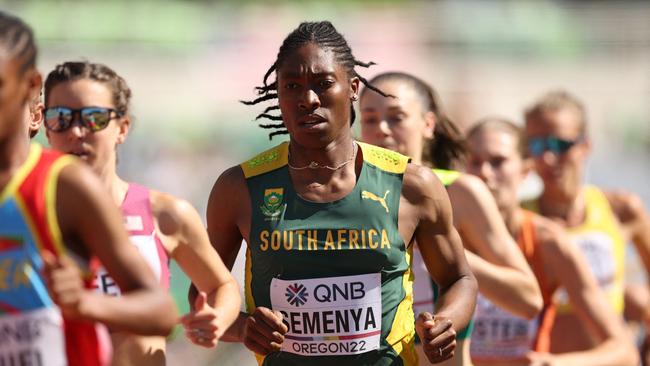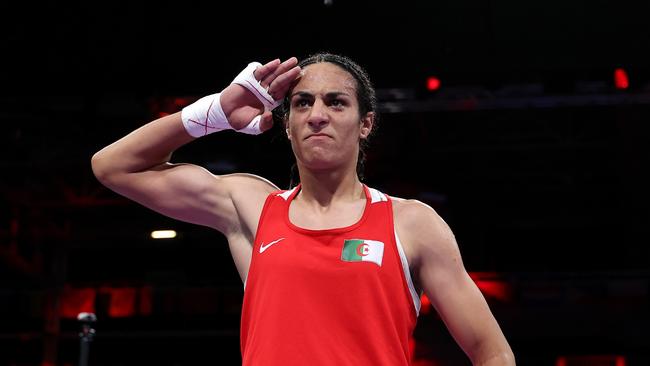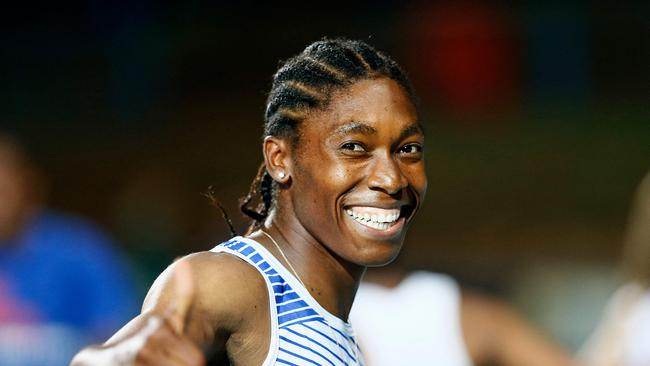Paris Olympics, boxing: Caster Semenya appeals to IOC after Khelif, Yu-Ting, controversy
Legendary South African intersex athlete Caster Semenya has been locked in legal battles for six years. She says boxing’s latest biological firestorm at Paris the Olympics is a disgrace.
Olympics
Don't miss out on the headlines from Olympics. Followed categories will be added to My News.
Legendary intersex athlete Caster Semenya has spoken out on the boxing biological powderkeg that has rocked the Paris Olympics.
The two-time Olympic gold medallist has taken aim at the International Olympic Committee, calling on the IOC to show more consistency and have a uniform policy for XY athletes who are under gender scrutiny.
The gender-eligibility debate has become the biggest issue of the Paris Games after the IOC allowed two XY athletes — Algeria’s Imane Khelif and Chinese Taipei’s Lin Yu-Ting — to box against women.
Khelif and Yu-Ting have secured at least bronze with the Algerian to return to the ring on Wednesday morning (AEST) for a semi-final showdown that could put her in contention for gold.

If anyone can relate to the firestorm raging around Khelif and Yu-Ting, it is Semenya.
The 33-year-old is the most globally recognised athlete with differences in sexual development (DSD) and has been locked in legal battles with athletics authorities for the past six years.
Khelif left the ring in tears after her quarter-final victory and Semenya appealed for the IOC to provide clear guidelines for all XY athletes to prevent more biological brouhahas tainting future Olympics.
Semenya says Khelif and Yu-Ting have been disgraced.
“The IOC’s policy and constitution should not contradict each other,“ Semenya told SportsBoom.com in an exclusive interview from Pretoria.
“Sport is for all people and the constitution says no to discrimination.
“If sport is for all, then why does the big governing body allow this sort of thing to happen?”
The International Boxing Association is at war with the IOC over the gender-eligibility debate. The IBA disqualified Khelif and Yu-Ting from last year’s world championships for failing sex tests, but the IOC is allowing the duo to compete because they are listed as females on their passports.

Semenya won gold in the 800m at the 2012 and 2016 Olympics, but is now refusing the compete because she has been asked to take medication to lower her testosterone levels.
The South African went through a mental-health battle over the biological ordeal and believes Khelif and Yu-Ting have been treated appallingly.
“Imane is a great boxer and people always criticise when someone is doing well, people always talk then,“ Semenya said.
“When she wasn’t winning, then everyone was quiet.
“They (IOC) should stand their ground and lead by example.
“It’s about quality leadership that safeguards, protects, and respects women.
“The minute they allowed women to be disgraced, it confuses us.
“What happened at the Olympics now is not what happened in my space.
“Each organisation has its own policy, boxing have their own and athletics has its own.
“It’s not about what I want, but about principles of life.

“My views are not about me because I have ventured more into coaching now, I stopped running seriously in 2022.
“I have kids now and I want to spend more time at home.”
World Athletics, then known as the International Association of Athletics Federations (IAAF), initially restricted their new rules on testosterone levels to just three track events – the 400m, 800m and 1500m.
That prompted Semenya to initially switch to the 200m and 5000m races, but was never a real contender at those distances, failing to make the Olympic qualifying standards.
Last weekend she ran her first competitive race in more than a year, a 10km event in Pretoria, finishing 10th in 37:13.
Semenya enjoyed the experience and is glad to no longer be in the firestorm now engulfing Khelif and Yu-Ting.
“It was really nice and I did it for all the women,“ she said.
“To make sure I inspire and show them that anything is possible. It was to celebrate women in sport and all women.”






